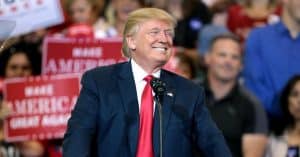The Supreme Court's Decision Ends Cohen's Case
Supreme Court Declines to Hear Appeal
In a significant decision, the highest court in the United States has declined to review a case brought forward by Michael Cohen, a former personal lawyer to Donald Trump, leaving in place lower court decisions surrounding the controversy.
The denial from the Supreme Court halts Cohen's attempts to claim that his return to prison was an act of retaliation by former President Donald Trump and certain government officials.
Cohen's legal troubles began in 2018 when he received a three-year prison sentence after pleading guilty to charges such as campaign finance violations and misleading Congress.
After serving some time, Cohen was released in May 2020 to home confinement due to the ongoing COVID-19 pandemic. However, difficulties arose when he refused to sign an agreement mandated by federal authorities that would limit his interactions with the media, including social media usage and engaging with the press.
Accusations of Retaliation and Legal Challenges
Following this disagreement, Cohen found himself back behind bars in July 2020. At this point, he alleged that the motive behind his reincarceration was retaliation, as he was actively promoting a book critical of Trump's administration at that time.
A federal judge subsequently ordered Cohen to be returned to home confinement, ruling that his brief return to prison was indeed retaliatory. The decision marked a notable victory for Cohen in his claims against Trump and federal officials, including then-Attorney General William Barr.
Despite this, Cohen pursued legal action in higher courts, aiming to establish that the removal from home confinement was intended as a punishment for being a vocal critic of a sitting president.
Lower Courts Dismiss Cohen’s Allegations
Cohen's legal journey saw setbacks as his complaints were dismissed by various lower courts. The Second Circuit Court of Appeals ruled against his assertions, maintaining the stance that the claims lacked substantial evidence or merit.
The former president's legal team argued along similar lines, standing firm that Michael Cohen's allegations were unfounded. Statements from Trump's attorneys highlighted what they believed to be a lack of credibility in Cohen's accusations.
The Biden administration's Department of Justice further added to the obstacles facing Cohen's case. Earlier this year, the department urged the Supreme Court not to take the matter under consideration, sustaining the dismissals provided by the lower courts.
Cohen’s Testimony Against Trump
Compounding on his high-profile legal disputes, Cohen also engaged in ongoing investigations related to his former employer. This year, he appeared as a witness in a case led by Alvin Bragg, the Manhattan District Attorney, further solidifying his role in legal matters involving Trump.
Amid these developments, Cohen's attempts to continue challenging the circumstances of his imprisonment reached a conclusive end. The Supreme Court's decision not to hear the case effectively closes this chapter of his legal fight.
Implications of the Supreme Court's Decision
The decision holds significant implications for Cohen, who sought recognition and redress for what he viewed as unjust treatment under the law. As Cohen argued, this case touches on a crucial principle: whether powerful figures can seemingly act without consequence against critics.
Cohen's petition to the Supreme Court voiced strong concerns over the impact and precedent of allowing government figures to suppress dissenting voices. The court, however, chose not to engage with these contentions, leaving the broader political and legal implications open to interpretation.
Although this marks the end of Cohen’s legal efforts in this context, the ramifications of his case continue to resonate. The discourse on retaliation against critics, particularly involving high-level political figures, remains an ongoing discussion in legal and political arenas.
With the Supreme Court's decision, attention now shifts to other legal challenges and investigations surrounding former President Donald Trump, as Cohen and others continue to play roles in these unfolding stories.
This resolution may symbolize a conclusion for Cohen's specific struggle but also serves as a reminder of the complexities in the intersection of law, power, and dissent in American politics.



